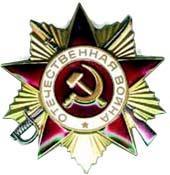The (Un)Ambiguous Stalin..

9th May 1945/2005
Sixty years after VE Day we are still walking in muddy political and moral grounds. On TV one can see a Red-starred Great Patriotic War train arriving at a Moscow station carrying Veterans and a poster of Stalin is present. Numerous Russian voices deplore the unbalanced recollection of the war effort by Western historians, being particularly aggravated by the fact that not enough attention is paid to the titanic dimensions of the Red Army exploits in the Eastern Front when compared to the relatively small-scale of the fight in the Western front. (Only the Landing on Normandie manages to get itself in the Top Ten Battles of the War.). Point taken, but the real issue, I think, is somewhere else. What we witness in Russia is a nostalgic philo-soviet commemoration. And it’s sad, really. The expectations were so high, just a few years ago, that the West and East, in European geopolitics, were to be turned into dated, useless concepts. But in the end, as we stand now, Stalin is still a player.
Stalin legitimised, by defeating against terrible odds the German Army, the Soviet power in Russia. All hopes that one day an ordinary Russian could see the Revolution crimes and the misery of post-Revolution life for what it was really like, and draw the necessary conclusions about their murderous leaders, were lost. What “primes” the Russian psyche is Stalin the saviour and Soviet regime as sinner but nevertheless the winner of monstrous fascism.
Whenever things are not that bright in Russia (even with oil at 50 dollars a barrel!) the old and current generations in power assume almost at an unconscious level a “soviet” “cold-warish” “inferiority complex towards the West” arrogant mentality. Even more saddening, the newer generations have not jumped forward, and “Asiatic vs. European” pseudo-explanations for Russian motivations continue to flourish.
A westernizer liberal filo-European Russian writer, Viktor Erofeev, published recently a must-read book called “The Good Stalin” where one can understand just how the myth of Stalin is still relevant in contemporary Russia. I quote from his book “(…) I have grown up and I have understood: the West and the larger part of the Russian intelligentsia have their own Stalin, but numerous millions of Russians have another one. They do not believe in a bad Stalin. They do not believe that Stalin tormented and tortured to death any one. The people have carefully fetched an image of a good Stalin, saviour of Russia and father of a grand nation. My father was side by side with my people. Do not offend Stalin! “
In the end, we are not commemorating exactly the same things, when, in 1945, both democracies and a totalitarian regime defeated Nazi Germany. And that equivoque still persists.
British historian Norman Davies put it beautifully:
“ So historians have a problem. Somehow they must find a way of describing a complicated war in which the combined forces of western democracy and Stalin tyranny triumphed over the Axis. They must give pride of place to the role which the Soviet Union played in the military defeat of Germany, just as the US shouldered the main burden of the war against Japan.
At the same time they must emphasise that Stalin’s triumph had nothing to do with freedom or justice, and that by western standards the overall outcome was only partly satisfactory. It is a tall order. To date, nobody has succeeded.”
Happy 60th Anniversary!
No comments:
Post a Comment